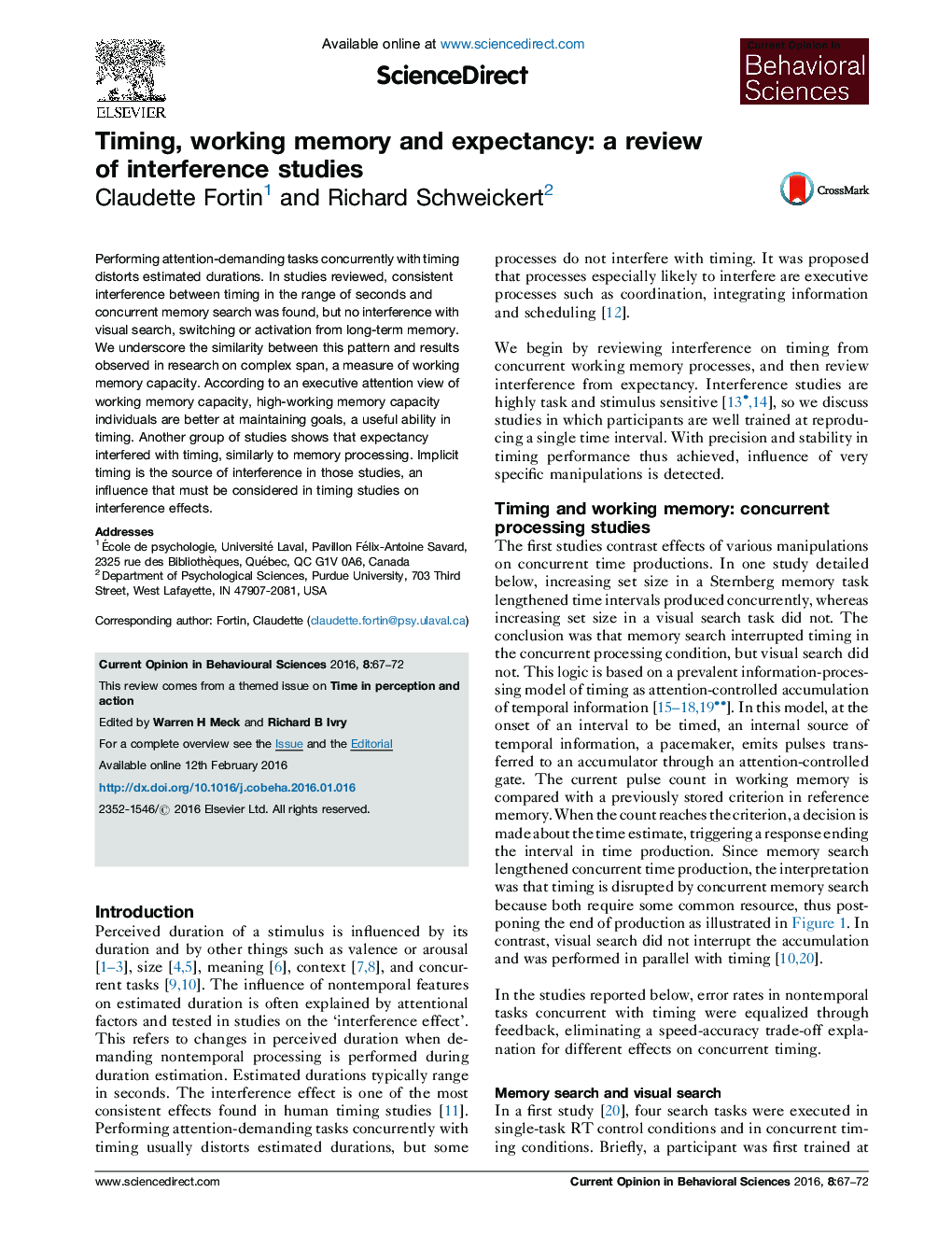| Article ID | Journal | Published Year | Pages | File Type |
|---|---|---|---|---|
| 6260480 | Current Opinion in Behavioral Sciences | 2016 | 6 Pages |
â¢Specific interference occurs between working memory processing and time production.â¢Timing is modulated by difficulty of processes which are also related to complex span.â¢Expectancy and working memory processing have similar effects on concurrent timing.â¢Expectancy favours use of regularity to predict events in timing tasks.â¢Predictive timing is implicit but may interfere with explicit timing processes.
Performing attention-demanding tasks concurrently with timing distorts estimated durations. In studies reviewed, consistent interference between timing in the range of seconds and concurrent memory search was found, but no interference with visual search, switching or activation from long-term memory. We underscore the similarity between this pattern and results observed in research on complex span, a measure of working memory capacity. According to an executive attention view of working memory capacity, high-working memory capacity individuals are better at maintaining goals, a useful ability in timing. Another group of studies shows that expectancy interfered with timing, similarly to memory processing. Implicit timing is the source of interference in those studies, an influence that must be considered in timing studies on interference effects.
